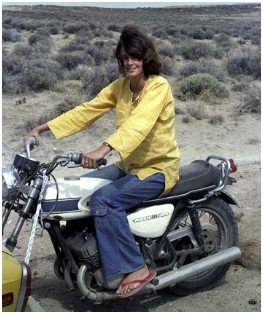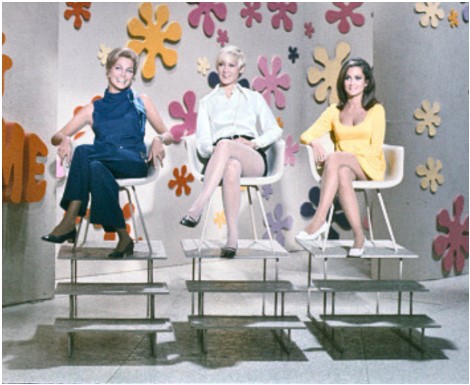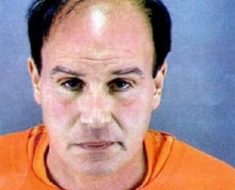Rodney Alcala, a notorious serial killer, rapist, and predator, earned the chilling nickname “The Dating Game Killer” after his appearance on a popular TV show. His crimes shocked the world, leading to multiple convictions and his eventual death sentence. His heinous acts have left a mark on criminal history, with many still grappling with the horrors he inflicted.
Quick Facts
| Full Name | Rodney James Alcala |
| Nickname | The Dating Game Killer |
| Date of Birth | August 23, 1943 |
| Place of Birth | San Antonio, Texas, U.S. |
| Date of Death | July 24, 2021 |
| Place of Death | Corcoran, California, U.S. |
| Criminal Charges | Multiple counts of murder, rape, and assault |
| Victims | At least 8 confirmed murders, potentially many more |
| Convictions | Convicted of first-degree murder in 1972 and again in 2010 |
| Modus Operandi | Lured victims with offers of photography or modeling |
| Notable Appearance | Appeared on “The Dating Game” in 1978 |
| Capture | Arrested in 1979 and 1980; convicted multiple times |
| Death Row Status | Spent decades on death row in California |
| Psychological Profile | Diagnosed as a sociopath; exhibited psychopathic behavior |
| Photography | Known for his hobby of photography; used it to lure victims |
| Appeal Process | Engaged in numerous appeals to overturn convictions |
| Legacy | Infamous for his heinous crimes; a notable case in criminology |
As I delved into the chilling details of Alcala’s life, I found myself grappling with a mix of horror and fascination. How could someone wield such darkness in a world that craves light? Each detail I uncovered about his manipulative charm and deceptive appearances served as a reminder of the fine line between normalcy and the abyss lurking beneath the surface
Early Life and Background

Born in San Antonio, Texas, in 1943, Rodney James Alcala was raised in a seemingly ordinary environment. However, signs of trouble
began early in his life. After his father abandoned the family, Alcala moved to Los Angeles with his mother. His childhood and adolescence showed growing psychological issues, which eventually led him down a dark path. Alcala exhibited early signs of sociopathic behavior, including manipulative tendencies and an alarming lack of empathy for others.
By the 1960s, his first brushes with the law began when he was accused of kidnapping and assaulting a young girl. This marked the beginning of his disturbing criminal career.
The Start of a Murder Spree
Alcala’s murder spree began in the late 1960s and extended well into the 1970s. His reign of terror spanned several states, including California, New York, and Washington. He was able to evade law enforcement for years, often moving across state lines to escape capture. During this period, he used his charm and a fake persona as a professional photographer to lure unsuspecting women into his trap. He would offer them modeling opportunities, only to later sexually assault and murder them.
Despite his criminal activity, Alcala remained free for much longer than expected, partly due to the limited forensic technology of the time. It wasn’t until DNA evidence became available decades later that many of his crimes were fully uncovered.
Among the countless lives affected by Rodney Alcala was that of 15-year-old Christine Thornton, who had dreams of becoming an artist. Her vibrant sketches filled her family home with hope and creativity. But when she disappeared in 1977, those dreams were cruelly snuffed out. Her family searched for answers, holding onto the hope that their beloved daughter would return. Each day without her was a reminder of the void Alcala created—a void that could never be filled.
Also Read: Steven Avery-Murderer| Net Worth, Age, Height, Relationship, Career and Wiki!
The Infamous “Dating Game” Appearance
Perhaps the most shocking and public moment of Alcala’s life came in 1978 when he appeared as a contestant on “The Dating Game,” a popular TV show. Despite being in the midst of his murder spree, he managed to charm both the audience and the female contestant, who chose him as the winner. While she eventually backed out of their planned date, his presence on national television stunned the public once his crimes were revealed.
His participation in the show highlighted the chilling nature of Alcala’s double life—portraying himself as a charming bachelor while secretly being a vicious predator.

Criminal Profile and Modus Operandi
Rodney Alcala was often described by criminal psychologists as a classic psychopath with extreme narcissistic traits. His modus operandi involved luring women by offering to photograph them, preying on their trust and vulnerability. Many of his victims were found with their bodies posed in disturbing ways, further emphasizing the sadistic nature of his crimes.

Alcala’s manipulation of others, his lack of remorse, and his ability to compartmentalize his brutal actions point to his deeply disturbed psychological profile. Experts believe he got a thrill from not just the murder itself. But also from the power and control he exercised over his victims.
Victims and Murders
Over the years, Rodney Alcala’s known victims have included at least eight confirmed individuals, although investigators suspect the actual number could be far higher. His confirmed victims include young girls and adult women, many of whom were sexually assaulted before their deaths. Some of the most notable cases include Robin Samsoe, a 12-year-old girl whose murder led to Alcala’s eventual capture and conviction.
Advances in DNA testing have linked Alcala to other unsolved cases, and there is ongoing speculation that many more of his photographs could be linked to additional victims.
Trials and Convictions
Rodney Alcala’s first arrest came in 1979, following the discovery of Robin Samsoe’s body. His trial for her murder led to a conviction, but this was later overturned on technicalities. However, subsequent trials and appeals saw him being convicted again, as more evidence, including DNA from other cases, surfaced. Alcala faced trials in multiple states, with California being the first to place him on death row.
Throughout these legal proceedings, Alcala attempted to fight his convictions, appealing his death sentence multiple times. Each trial brought more revelations of his horrific actions, further cementing his reputation as one of America’s most dangerous serial killers.
Rodney Alcala’s Appeal Process
Rodney Alcala spent years on death row, all the while trying to overturn his conviction. His appeals focused on technical issues, claiming errors in the judicial process. However, despite his efforts, each appeal only brought his execution closer. His multiple appeals stretched over decades, during which new evidence from his photographic collection linked him to additional crimes.
Life on Death Row
While on death row, Alcala engaged in various pursuits, including artwork, which raised eyebrows given the gruesome nature of his past. Interviews with Alcala during his imprisonment revealed a man with no remorse, instead showing an eerie calmness. He remained on death row in California until his death.
Photography and Posthumous Investigations
One of the most disturbing aspects of Alcala’s case was the discovery of his vast collection of photographs. Hundreds of photos, some of which depicted women and children in compromising or eerie situations, were found in his possession after his arrest. Many of these individuals remain unidentified to this day, and investigators believe some could be additional victims.
The FBI continues to investigate these photos, urging the public to help identify those portrayed in them. The photographs serve as a haunting reminder of the extent of Alcala’s evil.
Rodney Alcala Death and Legacy
Rodney Alcala died in July 2021 while still on death row, from natural causes. His death marked the end of a notorious chapter in American criminal history. However, his legacy remains, as his crimes have been widely covered in documentaries, books, and media reports.
Alcala’s story has left an indelible mark on how serial killers are viewed in popular culture, particularly the fact that someone could appear on a TV game show in the midst of a killing spree. His case also highlighted the importance of forensic advancements, such as DNA testing, in bringing serial killers to justice.
Rodney Alcala’s Victims and Impact
The true legacy of Rodney Alcala lies not in the grisly details of his crimes. But in the lives of his victims and the families who still carry the burden of his actions. Many of the survivors and families of victims have spoken out, using their voices to advocate for justice and awareness.
Rodney Alcala’s crimes shocked the nation, and his story serves as a cautionary tale about the dangers lurking behind seemingly charming facades.
FAQs
What was Rodney Alcala’s nickname?
Rodney Alcala was nicknamed “The Dating Game Killer” after his appearance on a popular TV show during his murder spree.
How many victims did Rodney Alcala have?
Rodney Alcala was convicted of killing eight people, but investigators believe he may have had many more victims.
Why was he called the Dating Game Killer?
He earned this nickname because of his appearance on the 1978 episode of “The Dating Game” while he was actively committing murders.
How did DNA evidence help convict Rodney Alcala?
Advances in DNA testing linked Alcala to several cold cases, ultimately leading to his multiple convictions.
When did Rodney Alcala die?
Rodney Alcala died of natural causes in July 2021 while still on death row.
What is the legacy of Rodney Alcala?
Alcala’s legacy is a reminder of the depravity of some individuals and the importance of forensic science in solving cases. His story continues to be discussed in documentaries, books, and media reports.






